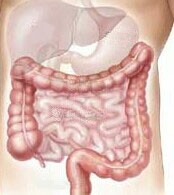 |
 |
 |

Colonoscopy Has a 'Right Side' Blind Spot
Procedure better at detecting problems on left side of colon, study says|
|
HealthDay
Monday, December 15, 2008
 MONDAY, Dec. 15 (HealthDay News) -- While a colonoscopy is a very effective procedure for combating colorectal cancer, it may not be quite as good as previously thought, a new study suggests.
MONDAY, Dec. 15 (HealthDay News) -- While a colonoscopy is a very effective procedure for combating colorectal cancer, it may not be quite as good as previously thought, a new study suggests.
The procedure does a good job of detecting early signs of disease on the left side of the colon, or large intestine, but is not as effective at spotting potential problems of the right side of the organ. This means a colonoscopy's success at preventing colorectal cancer deaths seems to lie with its ability to uncover so-called "left-sided" problems.
"We did find that colonoscopies are effective -- that's the good news. It's still one of the best screening tests for any cancer that we have," said study author Dr. Nancy Baxter, a colorectal surgeon with St. Michael's Hospital in Toronto.
"But it's not perfect," she added. "And it does not appear to be as effective in picking up growths on the right side of the colon as it is in detecting them on the left side."
The findings are published online Dec. 16 in the Annals of Internal Medicine.
The American Cancer Society says colorectal cancer is the third most common cancer found in men and women in the United States. There will be about 108,070 new cases of colon cancer this year; combined will rectal cancer, there will be nearly 50,000 deaths.
To gauge the effectiveness of colonoscopies at reducing colorectal cancer death, the researchers analyzed Ontario provincial health records for more than 10,000 colorectal cancer patients between the ages of 52 and 90. All the patients had been diagnosed with colorectal cancer between 1996 and 2001, and all had eventually died from the disease by 2003.
Slightly more than 700 of the cancer patients -- or 7 percent -- had undergone a colonoscopy. This pool was compared with just over 5,000 healthy people who also had undergone a colonoscopy.
The researchers found that having a complete colonoscopy was strongly linked to a lower death rate related specifically to colon cancer on the left side of the organ. But, the screening process showed virtually no death-prevention benefit with right-sided colon cancer.
Both findings applied equally across gender and age.
In an accompanying editorial in the journal, Dr. David F. Ransohoff, a professor of cancer epidemiology at the University of North Carolina, suggested that the mortality risk reduction offered by colonoscopies is probably closer to 60 percent to 70 percent, rather than the 90 percent figure typically cited.
Baxter said there are probably several factors that contribute to the left side/right side discrepancy.
"For example, there are differences in how polyps grow," Baxter said. "They tend to be flatter on the right side, which is harder to pick up and harder to take out when you find them."
"But the overall quality of colonoscopies is improving," she added. "And, meanwhile, there are some things that patients can do to improve pick up on the right side, such as complying well with their preparations. Many do already, but many kind of give up after part of the preparation is done. So, there are a lot of people who don't get through 100 percent of the prep. And I think it's important that they do so."
Dr. Judith Collins, section chief of gastroenterology at the VA Medical Center in Portland, Ore., said that despite the apparent limitations highlighted in the new study, colonoscopies are still the gold standard for detection of colorectal cancer.
"This is a totally preventable cancer," she said. "So whether screening for it results in a 60 percent reduction in death or 90 percent reduction, there's just no other cancer that we can see this well, and colonoscopy certainly reduces mortality. And that's the bottom line. There are a lot of variables that show that it is not a perfect test, but it's still a very good test."
HealthDay
Copyright (c) 2008 ScoutNews, LLC. All rights reserved.
Related News:
More News on this Date
Related MedlinePlus Pages:
| Home | Health Topics | Drugs & Supplements | Encyclopedia | Dictionary | News | Directories | Other Resources | |
| Disclaimers | Copyright | Privacy | Accessibility | Quality Guidelines U.S. National Library of Medicine, 8600 Rockville Pike, Bethesda, MD 20894 National Institutes of Health | Department of Health & Human Services |
Date last updated: 16 December 2008 |




